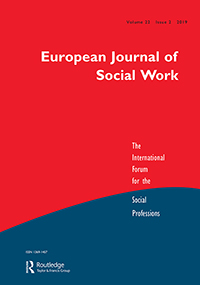The House of Commons Digital, Culture , Media and Sport Committee has published a report on the potential impact of Brexit on the creative industries, tourism, and the digital single market – click here for the full report.
Here are excerpts from the Conclusions and Recommendations
The UK creative, tech and tourism industries need sufficient access to talent to continue as world leaders. That is self evidently in the nature of being a global centre of excellence in these areas. The then Secretary of State, Rt Hon Karen Bradley MP, said that Brexit is an opportunity to think about “how we can upskill our native workforce”, but this alone will not address the challenges that businesses face today particularly in an increasingly globalised and international sector. Brexit will place a greater urgency on developing the skills of the domestic workforce, but we cannot allow a skills gap to occur which could create shortages of essential workers for businesses in the UK as a result of our departure from the EU. (Paragraph 32)
The then Secretary of State’s assertion that analysis of the workforce must be completed on a sector–by–sector basis is a sensible approach. However, the lack of detail regarding precise numbers is problematic. There is a lack of clarity about reliance on EU workers. For instance, figures cited to us for the number of people working in tourism ranged from 3 million to 4.5 million. (Paragraph 33) It is imperative that any analysis examines regional demand for staff and the operational requirements of businesses and organisations, ranging from very small start-ups to international corporations.
Irrespective of Brexit, the Government should overhaul the existing visa system for non-EU nationals, who also make a valuable contribution to the UK economy, including our creative, technology and tourism industries. These industries rely on EU workers, and their commercial success is built on having a diverse workforce. The Government must heed warnings that SMEs across creative industries and tourism will not have the capacity to manage a new system that foists additional bureaucracy upon them. (Paragraph 52) We believe that salary levels are a crude proxy for value and fail to recognise the central role that workers from the EU and beyond play in making British businesses successful. We recommend that the Government explores ways in which commercial value, and value to specific sectors of the economy, can be factored into the UK’s post-Brexit immigration system. (Paragraph 53)
Simplicity should be a key feature of the future migration arrangements that the UK will agree with the EU. In particular, the creative industries and performing arts need a system which complements the spontaneity that defines live performance. (Paragraph 54)
The ability to utilise Creative Europe to secure additional sources of funding, combined with the freedom it gives to British organisations to lead projects with partners from across the EU (and outside the EU), means that there are clear incentives to maintain our participation. (Paragraph 67.) If the UK were to depart Creative Europe, this would represent a significant blow to the performing arts, museums, galleries, publishing and many other sectors in the creative industries. The limitations of participation experienced by other non-EU members illustrates that reaching agreement may not be straightforward but, equally, neither the UK nor EU member states will benefit from the UK’s departure. (Paragraph 68)
The Government should publish a map of all EU funding streams that support tourism and creative projects, whether dedicated to this specific purpose or not. This mapping exercise should:
– spell out where previous EU funding has, directly or indirectly, benefitted these sectors;
– indicate those streams that will need to be replaced;
– provide an overview of the total sum of funding that the UK government will provide to cover these costs; and
– clarify the role of the devolved administrations in the present arrangements and their proposed role in the future in the eyes of the UK Government.
In addition, the Treasury and DDCMS should illustrate how ‘value for money’ will be measured in any assessment of those EU funds that will be honoured by the Government’s guarantee. (Paragraph 79)
Some businesses, in the fashion and textiles sector, for instance, do see opportunities to improve trade links beyond the EU post-Brexit, and to develop strategies to support more UK-based production.(Paragraph 88)
The success of the UK’s digital economy is underpinned by ongoing data transfer across the globe and particularly within the EU. In order to preserve the UK’s policing and security arrangements, and to maintain commercial confidence, the Government must aim to deliver certainty from March 2019 onwards. (Paragraph 117) It is important to recognise that Brexit creates a potential risk that the UK’s ability to transfer data across borders will be limited.
The conclusions of the House of Lords Committee expose two key concerns.
Firstly, leaving the EU may not give the UK the flexibility to develop data protection law in the manner called for by witnesses such as Dell EMC.
Secondly, once we leave the EU, our influence over the development of the legal framework that will guide UK law will be reduced, undermining our ability to agree structures and exemptions for the UK, and diminishing our role as a world leader in data protection law. (Paragraph 119)
Brexit puts at risk the UK’s position as a world leader in developing and implementing the regulatory system for data protection. To address this concern, the Government should lay before Parliament an action plan which describes how, post-Brexit, the UK will be able to develop policy on data protection to support businesses and protect consumers, in order to keep pace with the demands of fast moving and developing technologies. (Paragraph 120)
It is very encouraging that the tourism and aviation sectors believe that existing aviation arrangements will be replicated once the UK has left the EU. Unfortunately, the then Secretary of State could provide very little detail as to the nature of the discussions, potential stumbling blocks and, crucially, the timing associated with reaching an agreement. The Government should recognise that it needs to provide certainty to an industry that is already marketing holidays for summer 2019, and for the consumers who will purchase them. (Paragraph 132) We believe reaching an early agreement in relation to aviation is a key priority for the Government. Nevertheless, the Government must provide an assurance that contingency plans are being made in the event of no deal being agreed and provide more information as to what any contingency arrangements would mean for businesses and travellers. (Paragraph 133) The development of a new system of entry to the UK for EEA visitors will be a key aspect of the UK’s relationship with the EU after Brexit. In its consideration of the implications of altering the principle of free movement, the Government must be aware of the detrimental impact this could have for the UK as a tourist destination. Businesses and organisations within the tourist industry are understandably concerned and we believe that the Government should be cautious about taking any steps which could harm the ‘welcome’ the UK provides to tourists. (Paragraph 138) Given the potential benefits to the British tourist industry, while the Government is grappling with the challenges posed by Brexit, it would be wise to design a new system also to encourage more tourism from non-EU markets. We recommend that the Government publishes an analysis of how the visa system could be developed to boost inbound tourism by visitors from beyond the EU. (Paragraph 139)
Preserving a strong, robust Intellectual Property framework is crucial for the continued success of the creative industries after Brexit. As such, the Government should clarify its position on whether EU Intellectual Property transposed into UK law (via secondary legislation or otherwise) will continue to apply after Brexit, and if not, what contingency plans the Government has in place to ensure that the current level of Intellectual Property protection remains following the UK’s departure from the EU. At the very least, the Government should commit to ensuring that the current level of Intellectual Property protections offered by EU and UK law, including those that are vital to the success of the Creative industries, will remain unchanged. (Paragraph 158.) Equally, the Government should clarify how it intends Intellectual Property enforcement to operate after the UK has left the EU. The Government should lay out its plan for cooperation with EU states after Brexit on Intellectual Enforcement Property matters, and outline what improvements, if any, it intends to make to the current enforcement framework. (Paragraph 159)
If Country of Origin rules cease to apply after Brexit then we must expect this will have an impact on the broadcasting industry within the UK. The Government must set out the steps it is taking to avoid that outcome, explaining its negotiating objectives and the timescale for such negotiation. The Government should provide an update to the Committee on progress made in securing a deal by the end of May 2018. (Paragraph 184.) The Government should also confirm as soon as possible that it intends for the United Kingdom to remain members of the European Single Market and under the terms of the current Country of Origin rules, for a transitional period after Brexit, until the end of 2020. (Paragraph 185)
The concerns of audio-visual sector, including broadcasters, producer and rights holders, over terms of the Draft Digital Single Market Directive which would affect territorial licensing are just one example as why it is crucially important that the UK needs to preserve its influence while Brexit proceeds. The Government should clearly spell out its strategy for doing so and how it proposes to embed its future participation in the widening of the digital single market in any Withdrawal Agreement. (Paragraph 191)

 The government’s no deal guarantees remain in place to ensure continuity of funding in a no-deal scenario. The UK government has committed to underwrite competitive UK bids to EU funding submitted before exit, even if they are notified of their success after exit, for the lifetime of the projects.
The government’s no deal guarantees remain in place to ensure continuity of funding in a no-deal scenario. The UK government has committed to underwrite competitive UK bids to EU funding submitted before exit, even if they are notified of their success after exit, for the lifetime of the projects.












 REF Code of Practice consultation is open!
REF Code of Practice consultation is open! BU Leads AI-Driven Work Package in EU Horizon SUSHEAS Project
BU Leads AI-Driven Work Package in EU Horizon SUSHEAS Project Evidence Synthesis Centre open at Kathmandu University
Evidence Synthesis Centre open at Kathmandu University Expand Your Impact: Collaboration and Networking Workshops for Researchers
Expand Your Impact: Collaboration and Networking Workshops for Researchers ECR Funding Open Call: Research Culture & Community Grant – Apply now
ECR Funding Open Call: Research Culture & Community Grant – Apply now ECR Funding Open Call: Research Culture & Community Grant – Application Deadline Friday 12 December
ECR Funding Open Call: Research Culture & Community Grant – Application Deadline Friday 12 December MSCA Postdoctoral Fellowships 2025 Call
MSCA Postdoctoral Fellowships 2025 Call ERC Advanced Grant 2025 Webinar
ERC Advanced Grant 2025 Webinar Update on UKRO services
Update on UKRO services European research project exploring use of ‘virtual twins’ to better manage metabolic associated fatty liver disease
European research project exploring use of ‘virtual twins’ to better manage metabolic associated fatty liver disease